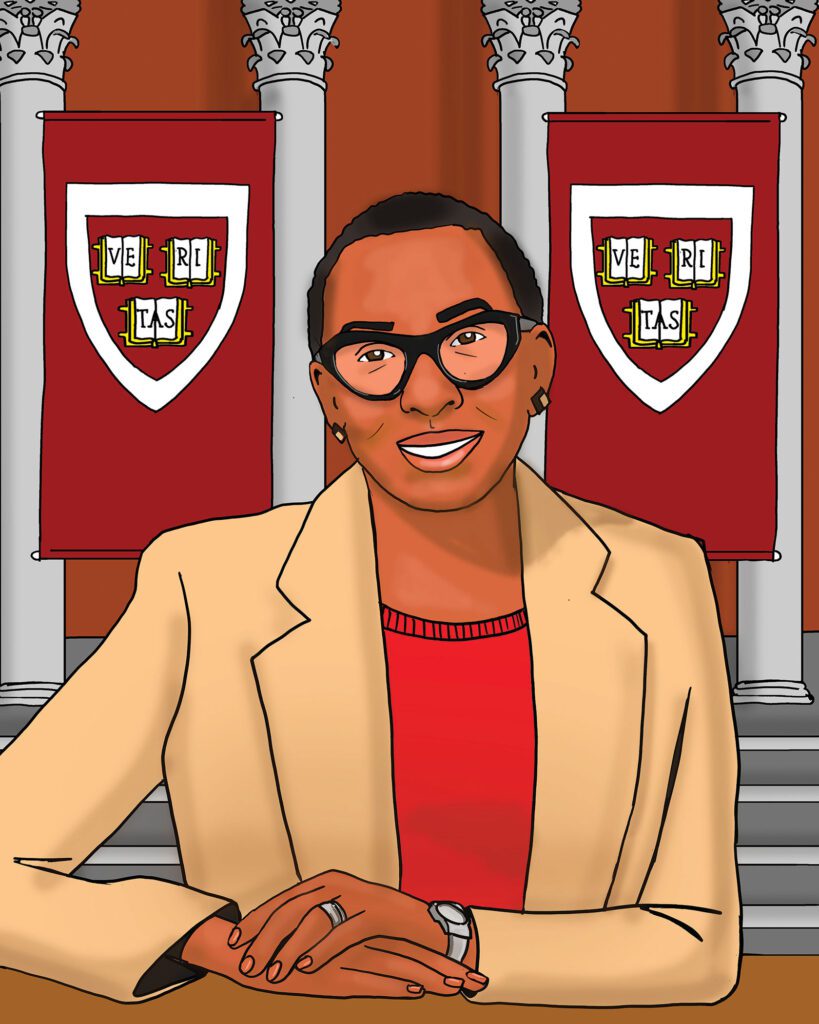Congressional backlash fails to remove Harvard’s first Black president

As Israel’s war in Gaza rages on, the fallout from the conflict is reaching all levels of our society.
Across America, the war and the Oct. 7 massacre that caused it are creating a deep divide, especially on college campuses. Those divisions spilled into the public sphere recently when the presidents from three of America’s top universities and colleges were called to a Congressional hearing in Washington, D.C., to address questions about antisemitism on their college campuses.
The presidents’ insufficient responses, a mix of legal gymnastics and equivocation, to a question about whether calls for the genocide of Jews violated their campuses’ rules sparked a swift national rebuke and calls demanding their resignations.
Within days, UPenn president Liz Magill resigned. MIT’s governing board issued a statement declaring its “full and unreserved support“ for President Sally Kornbluth despite the uproar.
Harvard’s board also weighed its decision about the fate of President Claudine Gay amid calls by donors, alumni and politicians to remove Gay, Magill and Kornbluth from their posts.
Gay, Harvard’s first Black president, and Magill and Kornbluth all had tried to draw a line between speech protected under the U.S. constitution and conduct that would be deemed an antisemitic hate crime.
But during a barrage of questions from Rep. Elise Stefanik, a Republican from New York, the college presidents struggled to clearly articulate when freedom of speech during a protest on their campuses crosses over to antisemitism.
Stefanik and other lawmakers, including Rep. Kirsten Gillibrand, a Democrat from New York, called for all three presidents to resign. Soon donors, students and others were also demanding they step down, adding that the college presidents did not clearly take a stand against antisemitism.
To be clear, all three presidents expressed a total rejection of antisemitism, but they seemed to get caught up in semantics over free speech and the point at which speech becomes a violation that requires action.
The fact that Stefanik is calling out antisemitism is especially rich, since she still strongly supports the leader of the Republican party, Donald Trump, who as president saw nothing wrong with marchers in Charlottesville who carried torches and chanted “Jews will not replace us” several years ago.
It’s hypocrisy, said Rep. Jamie Raskin, who is Jewish and a Democrat from Maryland.
“Somebody like Elise Stefanik has no problem going after Ivy League presidents,” Raskin said in an interview with MSNBC anchor Ali Velshi Sunday. “What about Donald Trump, who dines with Nicholas Fuentes, who is an unreconstructed Holocaust revisionist neo-Nazi?”
There were calls for Gay to resign as well. Gay had later apologized for her testimony in an interview in The Harvard Crimson, which reported that the leadership of Harvard Hillel said they don’t trust her to protect Jewish students at the university.
“I am sorry,” Gay wrote, in the article published on Friday. “Words matter. When words amplify distress and pain, I don’t know how you could feel anything but regret.”
But the calls for Gay’s resignation also took on a decidedly anti-Black and racist tone. The criticisms called into question her qualifications. Bill Ackman, a Harvard alum and billionaire investor, posted on X, formerly known as Twitter, that Gay was appointed as president not because of her merit but because of Harvard’s commitment to diversity and inclusion. His critique of her is especially personal, vicious and divisive.
“In her short tenure as President, Claudine Gay has done more damage to the reputation of Harvard University than any individual in our nearly 500-year history,” said Ackman in a letter to the Harvard Governing Boards on Dec. 10 that he posted on X.
But supporters for Gay saw those criticisms and others for what they truly are.
“To be racist and sexist is to assume superior white and male leaders earn their positions through merit, and inferior Black and woman leaders receive their positions due to identity. These ideas show up in times of crisis: the Black and woman leader is assumed to be the problem,” said Ibram Kendi, the director of the Center for Antiracist Research at Boston University, in a post on X Friday in response to a conservative group criticizing Gay’s credentials.
The racial scapegoating is not surprising, as our country struggles against the rise of white supremacy. But it is far from what we as a country should be focused on during this time of international strife and hardship.
The good news is Gay appears to be keeping her job.
Fellows of Harvard College, the university’s key oversight board, issued a statement of unanimous support for Gay on Tuesday, writing: “In this tumultuous and difficult time, we unanimously stand in support of President Gay,” according to published reports. The statement follows news that more than 700 Harvard faculty members signed a letter in support of Gay.
The Harvard faculty, staff and board of trustees should be applauded for standing in support of President Gay. Let’s hope Harvard’s first Black president can continue to receive the support she deserves for her illustrious career and lifetime commitment to higher education.







